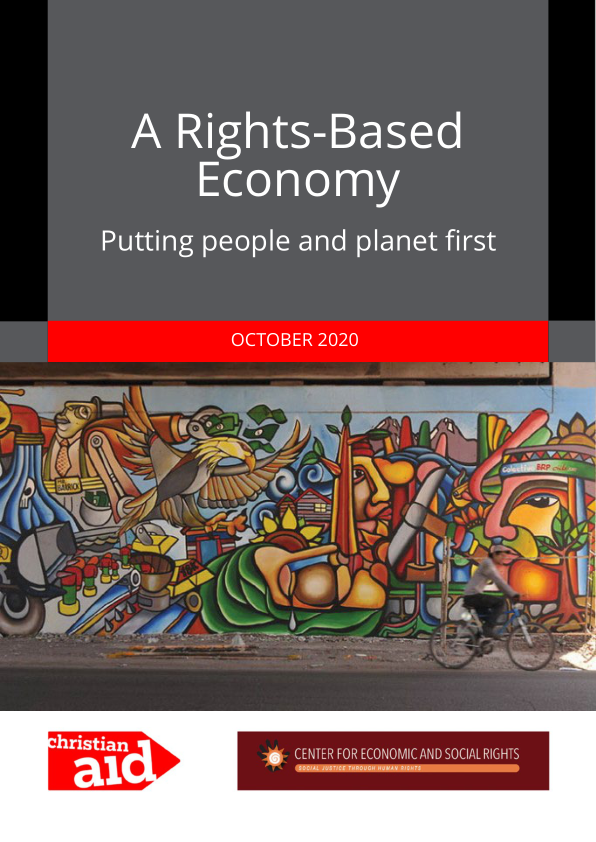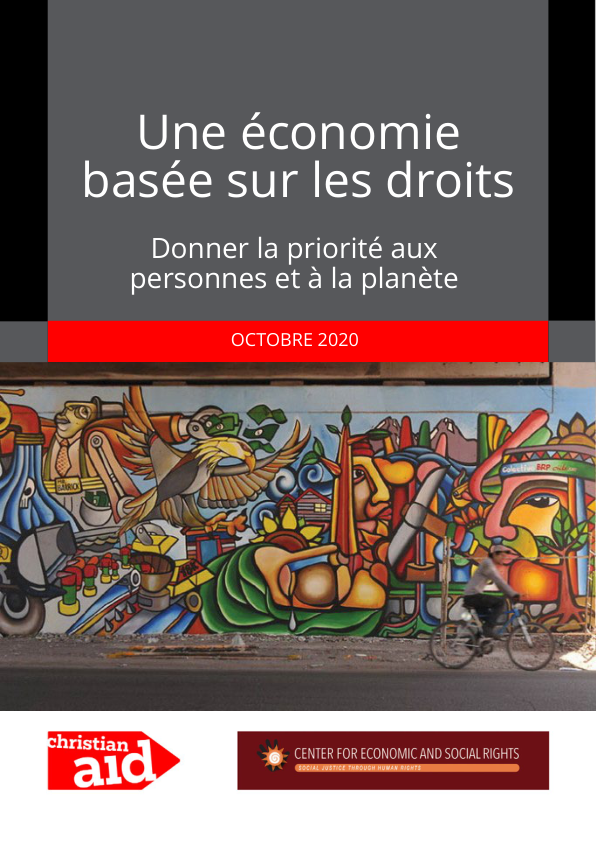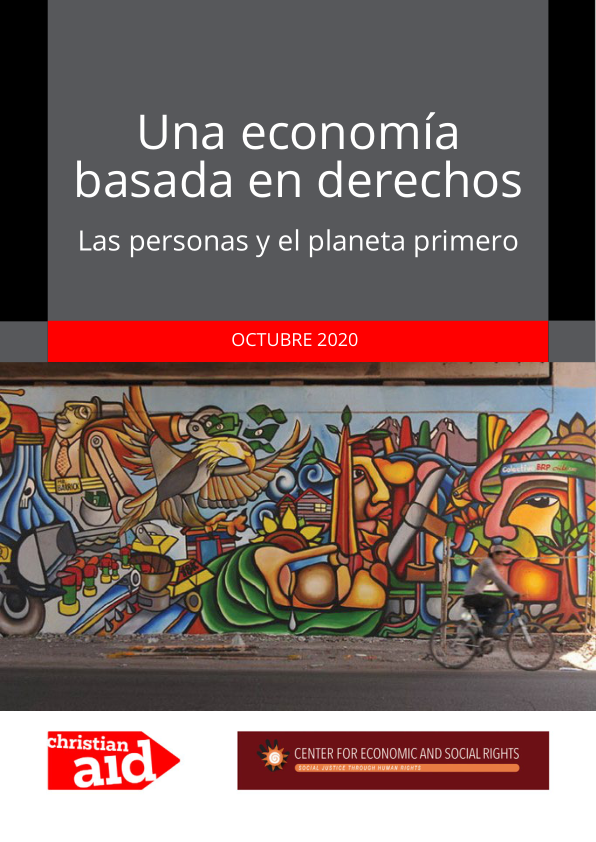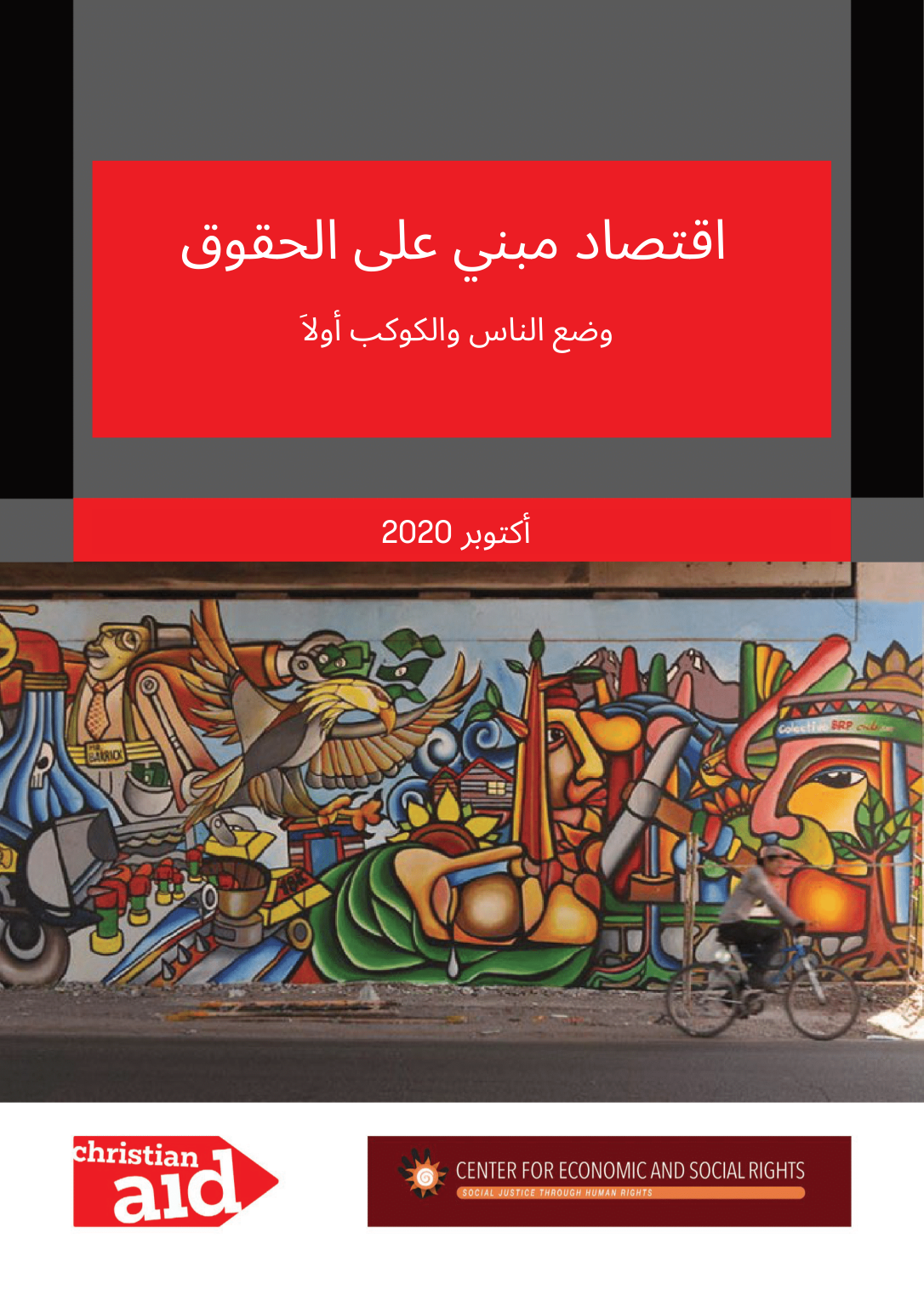The report's executive summary is available in English here
El resumen ejecutivo del informe está disponible en español aquí
الملخص التنفيذي للتقرير متاح هنا باللغة العربية
In A Rights-Based Economy: Putting people and planet first, the Center for Economic and Social Rights (CESR) and Christian Aid– two international organizations working for human rights and economic justice – ask: what would it look like if we had an economy based on human rights?
In this initial vision of a rights-based economy (RBE), we argue that its primary purpose would be to guarantee the material, social and environmental conditions necessary for all people to live with dignity on a flourishing planet. The measure of its success is whether all people are able to enjoy their full rights – economic and social, civil and political, cultural and environmental - without discrimination and without reducing the ability of future generations to do so. Human rights, we argue, enrich our vision of economic justice by providing a widely agreed framework of ethical values and legal obligations that should underpin our economies, informed by a holistic understanding of human wellbeing. They demand action to redistribute resources, remedy inequalities and rebalance power.
Section 1 of the report looks at the values that should guide an RBE. It explores how the standards and principles of human rights law give force, flesh and specificity to fundamental values such as dignity, equity, fairness, solidarity, accountability and justice, which resonate strongly in current debates around alternative visions of the economy.
Section 2 then looks at what it would mean to embed these values in our economies. It explores how a rights-based approach would transform critical areas of economic policy: social protection, labor rights and wages, public services, tax and corporate regulation. It also describes the seismic shifts needed in global economic governance. Throughout, promising existing policy approaches are highlighted and their symbiosis with human rights enjoyment explored.
Section 3 outlines the systemic shifts needed to weave these specific policy changes together, and to fundamentally transform what we produce, distribute, consume and value in our economies.
-
From exploiting and plundering natural resources to respecting planetary boundaries
-
From a fixation on economic growth to more holistic, ecologically sound and human-centered measures of success
-
From taking care for granted to recognizing its place at the center of our societies
-
From valorizing the private sector to reclaiming the power of the public
-
From corporate monopolies to worker and community power
-
From elite capture to renewing democracy at local, national and global levels
The current moment provides an unmissable opportunity to advance a vision of a rights-based economy and catalyze action across movements, from mobilization and organization to popular education and narrative change. By joining forces, we can transform our economies to put human dignity and flourishing at their center. Human rights can not only inform a new vision of economic justice, but also guide our pathway to achieving it.




